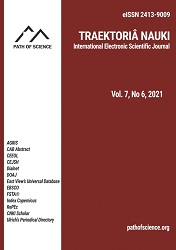Evaluation of the Bacterial Quality and Physicochemical Properties of Waterside River Ogbor-Hill Aba, Nigeria
Evaluation of the Bacterial Quality and Physicochemical Properties of Waterside River Ogbor-Hill Aba, Nigeria
Author(s): Samuel Ekene Odo, Chibuzor Precious Emmanuel, Nnenna Harriet Nwosu, Felix Grace ChinomsoSubject(s): Agriculture, Energy and Environmental Studies, Health and medicine and law, Sociobiology, Environmental interactions
Published by: Altezoro, s. r. o. & Dialog
Keywords: bacteriological analysis; chromium; faecal coliform; lead; physicochemical parameters; total coliform;
Summary/Abstract: Safe water scarcity is one of Nigeria’s critical challenges, and it is yet to receive adequate attention. Water-borne diseases and Water-related health problems are prevalent. This study evaluated the bacterial quality and physicochemical properties of Waterside River, Ogobor-Hill Aba, Nigeria. The pour plate technique was employed to analyse the 15 water samples obtained from Waterside River bacteriological analysis. The mean of Total Heterotrophic Bacteria Count, Total Coliform Count and Faecal Coliform (Escherichia coli) were 1.29x106, 7.4x105 and 3.2x105 colony forming units (CFU/ml), and the bacterial isolates were Citrobacter spp., Escherichia coli, Staphylococcus aureus, Salmonella spp., Pseudomonas aeruginosa and Shigella spp. The physicochemical parameters that were analysed by standard methods for the analysis of water and waste-water include Temperature, pH, Lead (Pb), Manganese (Mn+2), Cadmium (Cd), Mercury (Hg), Arsenic (As), Chromium (Cr6+), Iron (Fe+2), and Zinc (Zn). All the physicochemical parameters determined were within the standards recommended by the Nigerian Industrial Standard and World Health Organization except Pb (0.21), Mn+2 (1.45), Hg (0.002) and Fe+2 (1.03). The result shows that the Waterside River is unsafe for consumption and application in domestic activities except after proper treatment. The bacterial organisms Isolated have been found to cause diseases, and physicochemical parameters such as Lead (Pb), Manganese (Mn+2) and Mercury (Hg) can lead to serious health challenges such as poisoning, neurological disorders and even death. Environmental laws that forbade the indiscriminate dumping of domestic and industrial wastes into the Waterside River should be enforced and defaulters sanctioned. Individuals, households and factories should stop transporting solid wastes and waste-water into the river and activities capable of causing pollution of the river should be discouraged.
Journal: Traektoriâ Nauki
- Issue Year: 7/2021
- Issue No: 12
- Page Range: 1019-1025
- Page Count: 7
- Language: English

